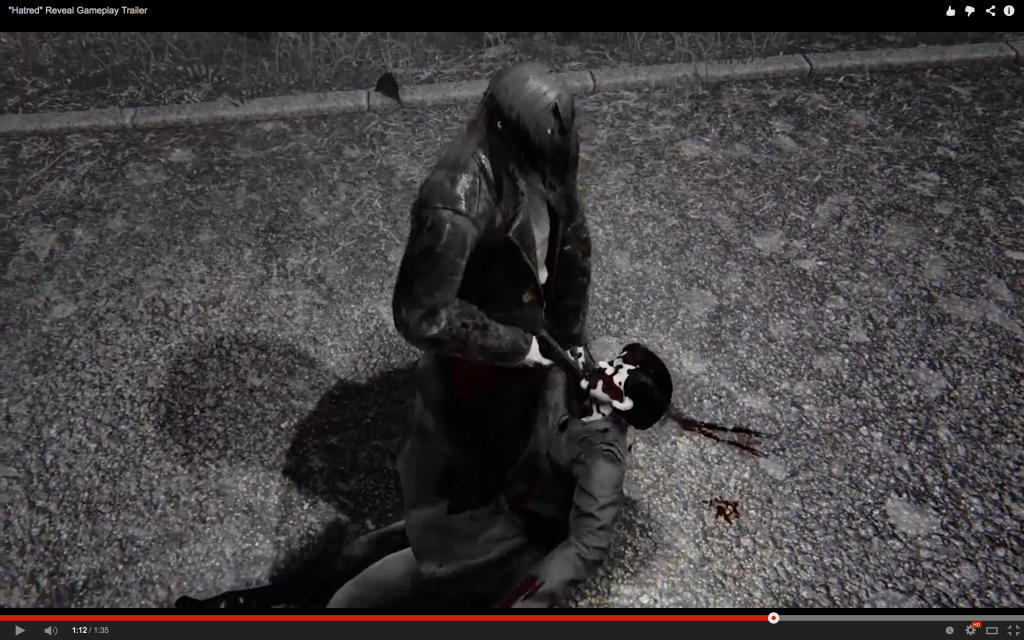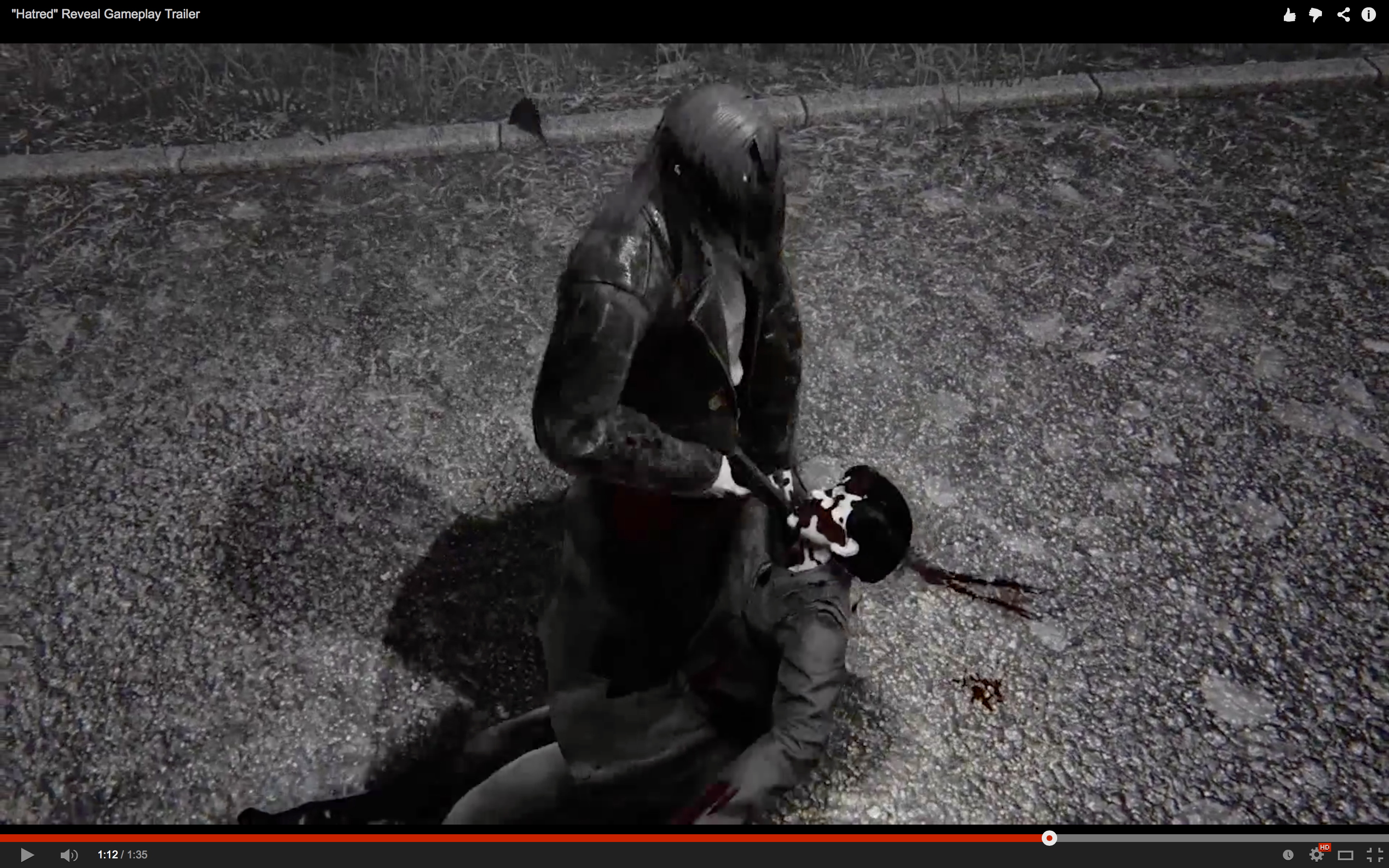There’s quite a hubbub surrounding the game Hatred. Lots of people decry its very existence, complaining that it’ll lead to more violence. Plenty of people don’t like the game, and they don’t think it should’ve been made. But the truth is that Hatred appears to be more honest about violence than most any other video game I’ve ever seen.
You see, the game doesn’t seem to try to justify violence like so many other video games do. In the Grand Theft Auto series, you can certainly kill for fun, but the game also provides systems that reward you for killing—for instance, the random amounts of money that you can pick up from their corpses. Those rewards justify the killing and the violence. The violence also isn’t couched in some kind of narrative device. In Max Payne, all of your violence is justified because you’re killing in the name of your slaughtered family. In countless shooters, you fire bullets that end another man’s life when they tear through his skull and brain, but it’s okay because you’re a soldier fighting ‘the enemy’. Of course, whether the game actually ends up rewarding violence is to be seen.
In Hatred, the violence is unadulterated—it is pure and simple, raw. While one might say that the game glorifies the violence, I would say that it is arguable that the game simply puts violence in the front and center. It doesn’t reward or glorify it so much as it reminds you that these are the terrifying consequences of violence. Focusing on a woman’s terror when the man puts a gun in her mouth and obliterates her life with a pull of the trigger can be interpreted as a way to force players to confront their violence. If it makes you feel uneasy, that’s a good thing. It reminds you that it’s not so great to kill. It makes you think twice before pulling that trigger and pumping someone full of lead. So, really, Hatred is doing a public service.

